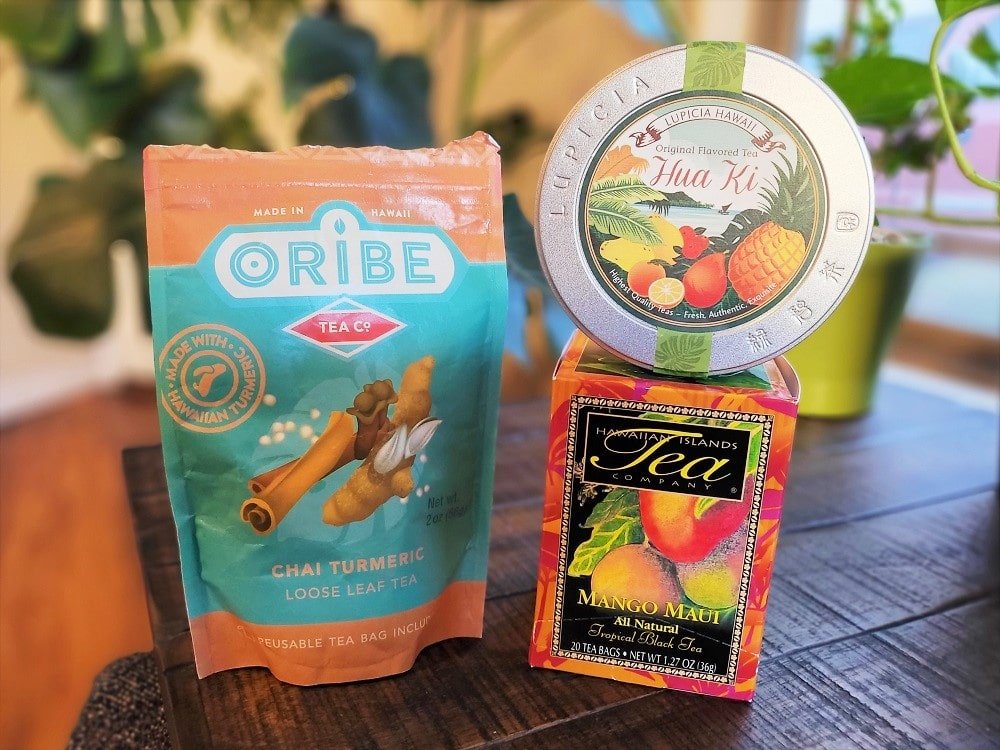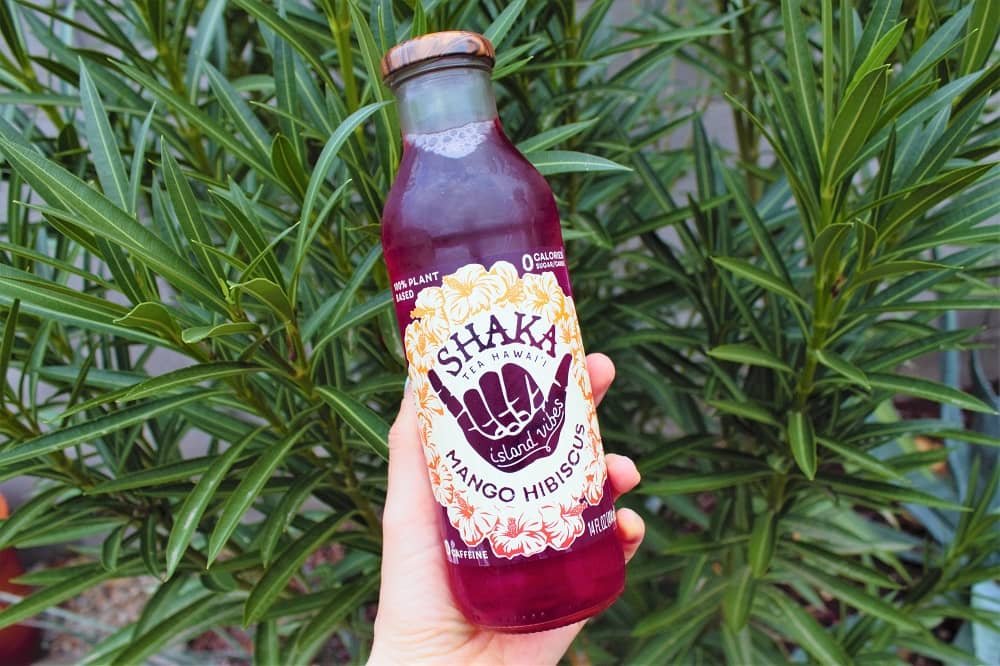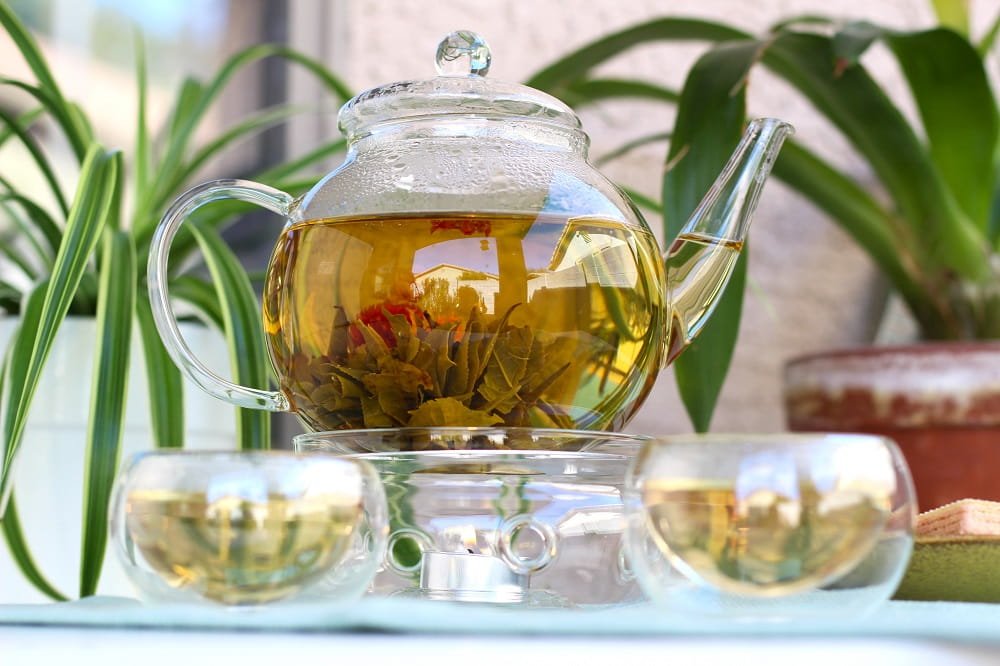A taste of Hawaiian tea brands and farms in the Aloha State
This post contains affiliate links, which means Steeped Dreams earns a small commission if you purchase with these links or discount codes (at no cost to you). Please know all opinions in reviews on Steeped Dreams are genuine and not influenced by affiliate partnerships.
From tropical fruit to Kona coffee, the Hawaiian islands are known for a bounty of fresh crops thanks to their ideal climate and rich volcanic soils. More recently, however, Hawaii has stepped into the age-old tea industry.
While not yet as iconic as pineapples and macadamia chocolates, small-scale Hawaii tea companies and farms are starting to make a name for themselves. Here’s a bit about this growing artisanal industry for tea in Hawaii.
Why is there tea in Hawaii?
A few native Hawaiian plants, such as mamaki and ko'oko'olau, have been used for centuries by Hawaiians to make healing herbal teas. However, the tea that comes from the camellia sinensis plant that the world is most familiar with has a much shorter history on the islands. It’s from this plant that green, black, oolong, and white teas originate.
The first stab at planting tea (camellia sinensis) in Hawaii was around the same time that the first tea plants arrived in Africa—back in 1887 [1]. Due to much higher labor costs in Hawaii and the labor-intensive nature of tea, the crop was never very profitable and flopped. Coffee, which takes less labor to produce, took off instead.
According to the magazine Fresh Cup, we have USDA scientist and horticulturist, Francis Zee, to thank for tea’s modern reintroduction to Hawaii in 2000 [1]. Zee believed in the crop’s potential on the islands, and sought funding for a project that provided seeds and training to prospective farmers to get started on their own tea plants. This collective of zealous gardening hobbyists and small-time farmers kicked off a uniquely artisanal tea industry.
Today, much of the tea in Hawaii is packaged and sold to tourists at a much higher price than your run-off-the-mill Lipton, which maintains profitability despite higher production costs. And, because of the vast diversity in microclimates across Hawaii, each unique farm can grow distinctly tasting teas [2]. As such a young industry, there is still tons of room to grow!
5 Hawaiian tea farms open to visitors
Source: Onomea Tea Company
There are more tea farmers in Hawaii than any other US state, so tea lovers visiting Hawaii are in for a unique treat not easily found on the mainland [2]. For Hawaiian tea farmers, agritourism to their farms provides an additional income stream besides tea sales.
These Hawaiian tea farms provide tours and occasional tastings, so you get the full tea experience from plant to cup.
1. Mauna Kea Tea
Mauna Kea Tea was started by Taka and Kimberly Ino on the Big Island, where their five acre farm produces mostly green teas. They use sustainable farming methods that forgo chemical fertilizers and pesticides. While Mauna Kea Tea’s indoor tasting room and farm visits are closed due to COVID-19, outdoor tea tastings are available by appointment.
You can also buy Mauna Kea Tea’s tea directly from their website.
Where: Big Island
Website: maunakeatea.com
2. Big Island Tea
Big Island Tea is one of Hawaii’s first tea farms, started in 2001 with help from the Hawaii State agriculture project. The husband and wife team that owns the farm produces ultra premium single-batch whole leaf green and black tea. They are open for farm tours and workshops.
As a wholesaler, you can’t buy this farm’s tea on their site, but there are several vendors that sell it.
Where: Big Island
Website: bigislandtea.com
3. Maui Tea Farm
The folks at Maui Tea Farm specialize in organic loose leaf teas and herbals like Hawaiian mamaki tea. At over 4,000 feet in elevation, Maui Tea Farm enjoys cool air and frequent cloud mist that enables them to grow premium high mountain tea. They offer one and two hour tea tours.
You can also buy their teas online from their website.
Where: Maui
Website: mauiteafarm.com
4. Onomea Tea Company
Tea estate owners, Mike Longo and Rob Nunally, started Onomea Tea Company in 2003 after obtaining tea plants from their local USDA office. They are certified organic and produce white, green, oolong, and black teas. The combined tea tasting and tour experience is a three hour long event filled with home baked scones and are by reservation only.
Their Hawaii-grown tea is available for purchase directly from their website.
Where: Big Island
Website: onotea.com
5. Tea Hawaii
Tea Hawaii, situated in the rainforest summit of Kilauea, is owned by couple Eva Lee and Chui Leong. They produce oolong, black, and white teas, and partner with a few other growers to expand their Hawaii-grown tea offerings. They have a one hour tea tasting and tour experience.
You can buy teas directly from their site, in addition to hand-crafted teaware.
Where: Big Island
Website: teahawaii.com
9 made-in-Hawaii and Hawaiian tea companies
In addition to tea farms, Hawaii has also seen several tea companies pop up.
It’s important to make the distinction between “made-in-Hawaii tea” that uses Hawaii-grown tea leaves and “Hawaiian tea” that uses imported tea and blends it with tropical, often fruity ingredients. The latter is usually branded as Hawaiian tea due to the association with exotic flavors, but its ingredients are not typically from Hawaii.
Both are delicious in their own ways, but buyers should be aware of the difference depending on what they’re looking for!
Here are a few Hawaiian tea companies for each category.
Tea grown in Hawaii
Oribe Tea sells both Hawaii-grown and Hawaii-inspired teas that feature locally sourced ingredients like turmeric and mangoes.
Website: oribetea.com
Shaka Tea has been shaking up the Hawaiian tea industry with its ready-to-drink bottled mamaki teas, which you can find in stores across the United States.
Website: shakatea.com
Hawaiian Natural Tea is The Tea Chest’s organic tea bag line, sourcing tea and other ingredients from local Hawaiian farmers.
Website: teachest.com/collections/hnt
Hobbs Tea works with Hawaiian tea farmers and believes in packaged tea with no bleach, plastic, nylon, pesticides, chemicals, or toxins.
Website: hobbstea.com
Treehouse Tea founder Brittnee Lau is committed to using 100% Hawaii Grown teas & botanicals in her company’s products, which are sold online and in a number of shops and cafes in Hawaii.
Website: thetreehouseteahouse.com
Hawaii-inspired tea
Despite the fact that the Hawaiian Islands Tea brand is seemingly in every tourist shop and grocery store across Hawaii, its tea is imported from abroad and blended with tropical flavors.
Website: hawaiianislandstea.com
Lupicia is a Japan-based tea company with a store in Honolulu that features a line of Hawaii-inspired blends.
⭐ Read my review of Lupicia’s Honolulu store here!
Website: usa.lupicia.com
Hanalei Tea Company’s blended teas incorporate tropical fruit flavors inspired by Hawaii and are packaged in easy-to-gift wooden boxes.
Website: hanaleicoffeeroasters.com
Maui Rainbow Tea hand-blends tea with natural fruity ingredients like papaya, lychee, and coconut.
Website: mauirainbowtea.com
-
[1] Gascoyne, Kevin. “Hawaiian Teahttps://Www.freshcup.com/Hawaiian-Tea/.” Fresh Cup Magazine, 15 Mar. 2019, https://www.freshcup.com/hawaiian-tea/.
[2] Anderson, Brittany P. “Hawai'i Island Tea – Craft Brew.” Ke Ola Magazine, 29 Dec. 2017, https://keolamagazine.com/agriculture/hawaii-island-tea/.









![[Review] Firebelly Tea - Sleekly designed functional blends](https://images.squarespace-cdn.com/content/v1/6008e4b84dfdb80938cd0442/cdd4b217-3704-40dd-b11e-bc18ff413610/firebelly+tea+review.JPG)
![[Review] Harney & Sons - Paris tea and two similar blends](https://images.squarespace-cdn.com/content/v1/6008e4b84dfdb80938cd0442/5cf20e59-ce49-4fba-b9dc-16f1f43a1349/harney+tea+with+plant.JPG)


